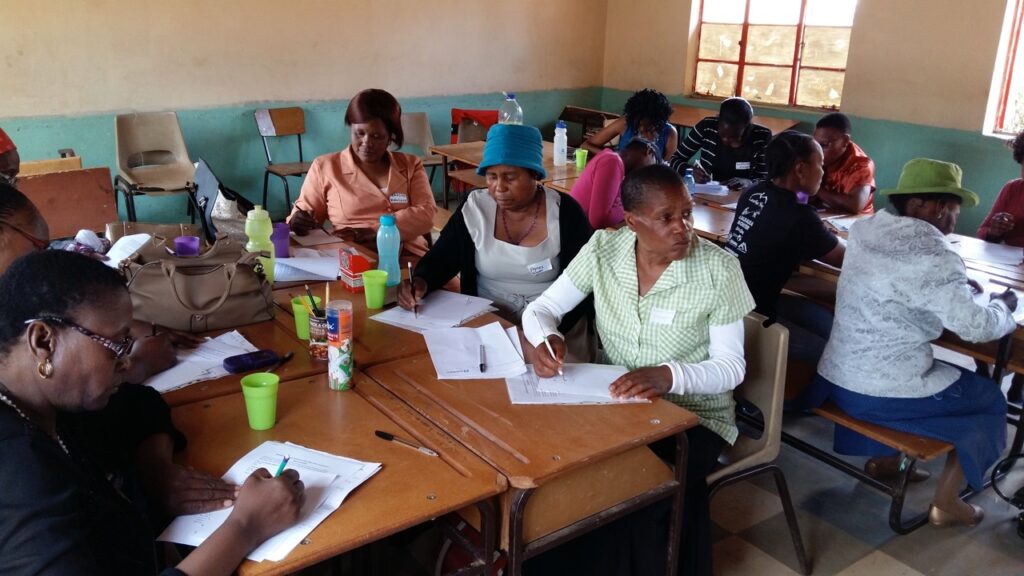Book Distribution
Created locally with contexts and characters that children can relate to, our books have already travelled the length and breadth of Lesotho. They have been very well-received by young children, parents, teachers, schools for children with special needs, orphanages, and after-school projects.
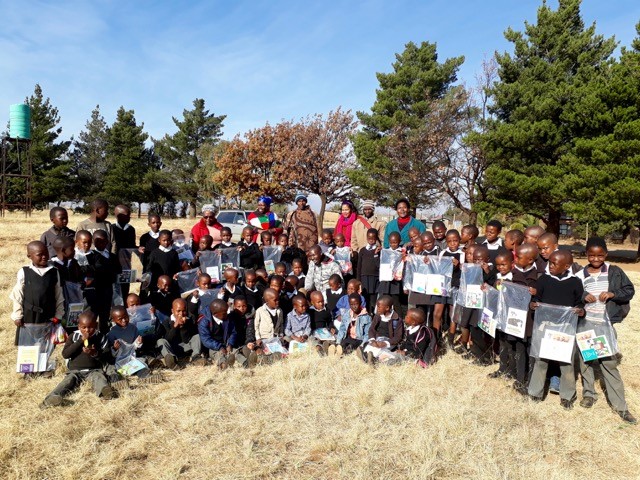
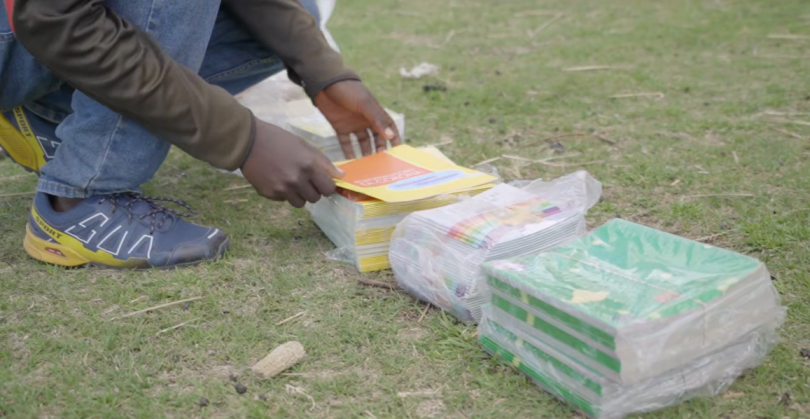
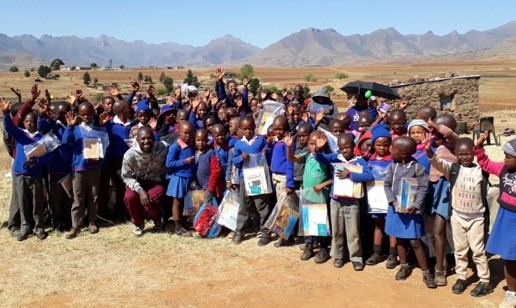
Giving Books Directly to Children
Our policy at Paleng is to put as many books as possible directly into the hands of children – see how below. For most rural children this is the first book they ever will have owned in their lives and it is very special for them. We take care to have children write their names in their books so that the message is clear: this book is yours. Many of the children find this hard to believe. Research consistently shows that, regardless of socioeconomic context, children who have books at home have a distinct advantage when acquiring literacy and achieving longterm academic success.
We have often been asked why we don’t distribute books through the school system. Schools are under-resourced, particularly when it comes to storybooks written in the children’s mother tongue. Schools that are equipped with libraries rarely make use of them. If children do have access to books, they are often not allowed to take them home. In addition, unfortunately, corporal punishment is rife in many rural schools, and so children learn to be afraid of reading because mistakes, which are inevitable in the learning process, are punished. A culture of reading cannot emerge and flourish in an environment of fear.
Books in the home offer a reading experience and opportunity to practice that isn’t necessarily policed by an adult. These books are constantly available and can be picked up and enjoyed whenever and however the child pleases. Reading on their own terms helps children learn to love books and see the importance and joy inherent in reading stories. We also know from our own observations and anecdotal information that our books are shared with others in the family and beyond – with neighbours, friends, and extended family. In this way each of our books holds the potential for wide-reaching impact, helping us to achieve our vision of a culture of reading.
Our Story Festivals
Our primary means of providing books directly to children is through our Story Festivals. Since 2016 we have worked with over 1000 children at 15 festivals – 9 in different villages in and outside the Malealea valley, 6 in Primary Schools, and 1 at an orphanage. We make sure we have the village chief’s blessing, and always invite teachers and key adults from the village to observe what we do so that they can continue this beyond the festival.
We are always on the lookout for new Story Festival venues – places that express an interest in our work, where books and literacy acquisition are valued. And we’ll move mountains to get books there – many of our festivals have involved visiting villages only accessible by horseback, or on foot, using donkeys to transport books, food, and other materials. Please contact us if you’re interested in helping us fund our visits.
Our festivals are full of activities, all of which are designed to support and encourage reading. Watch this short clip featuring festival footage and a breakdown of how they work by our director, Marion. Our festivals are described in more detail below.
A typical Story Festival includes the following:
- Ahead of time we choose one or more Paleng books that we are going to give out. We do a warm-up activity related to the book with the children which also serves to break the ice.
- We read the chosen book in both languages. We also add some improvisational performance elements, story retelling by children, drawing characters and events in the story and so on, to help us bring the story to life with the children.
- We give out the book(s) and ask the children to write their names in it, reinforcing ownership.
- We repeat the story, this time encouraging the children to read and perform along with us. We have found that children love taking part as characters from the story, they are born performers! This works well and encourages their active engagement.
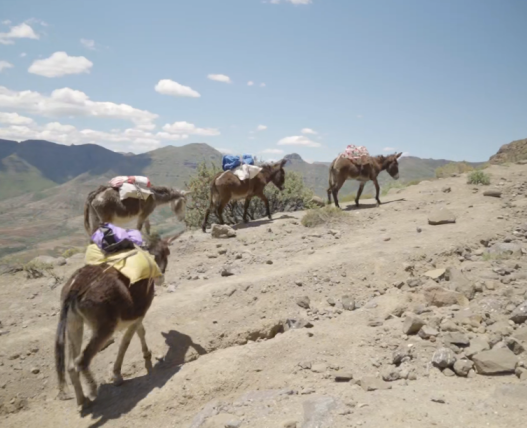
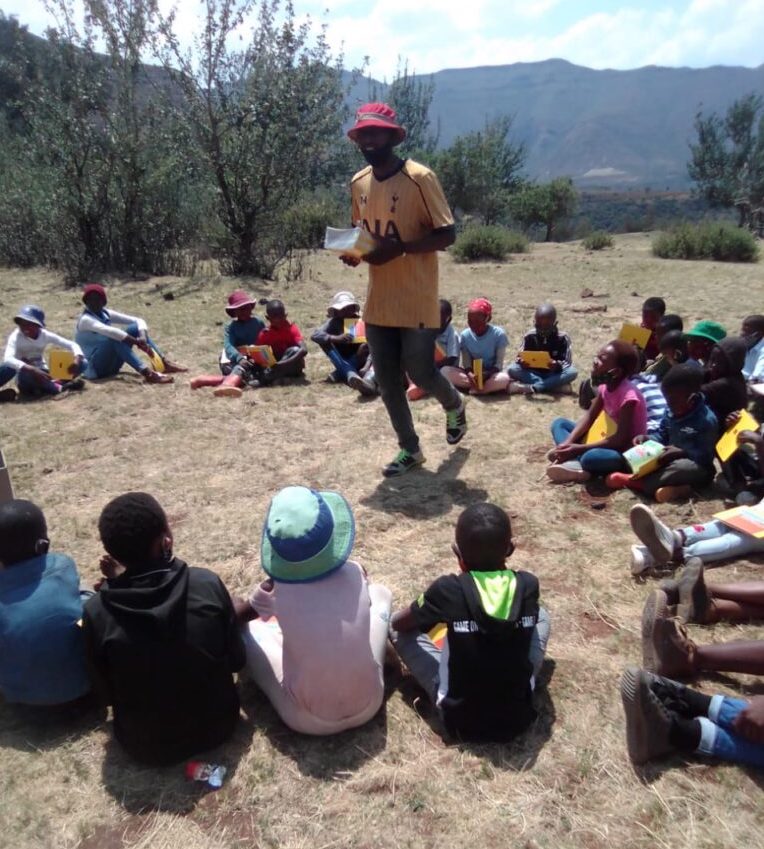
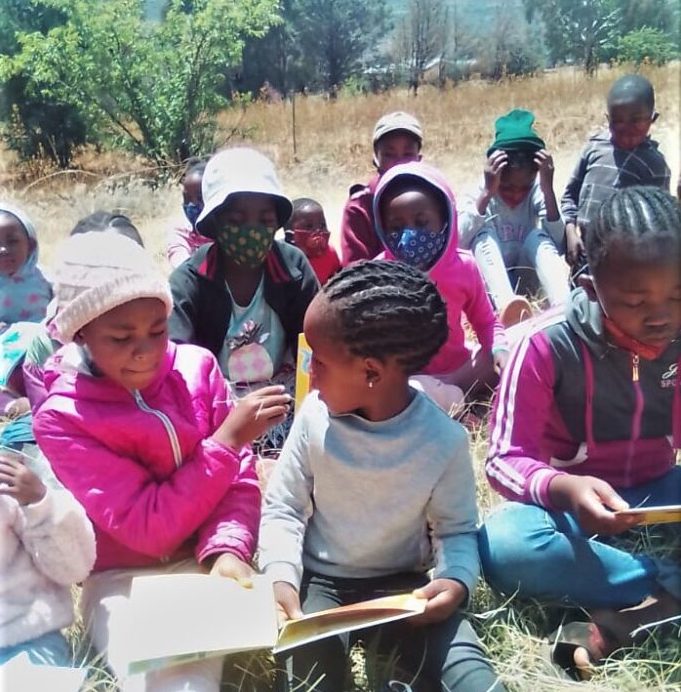
- If the book warrants it, in the case of our coronavirus and counting books, we highlight certain pages or aspects that we’d like children to pay particular attention to when they read it for themselves.
- We ask the children to respond by telling us what they think of the story and whether or not they enjoyed it. This writing and drawing creates critical engagement with the reading material and shows the children that their opinions are valued. The children are encouraged to share their ideas throughout the festival.
- We also play a game or two that teachers can also use in their own interactions with children. The game often involves phonemic awareness (listening to and identifying words and parts of words) but always includes physical fun too.

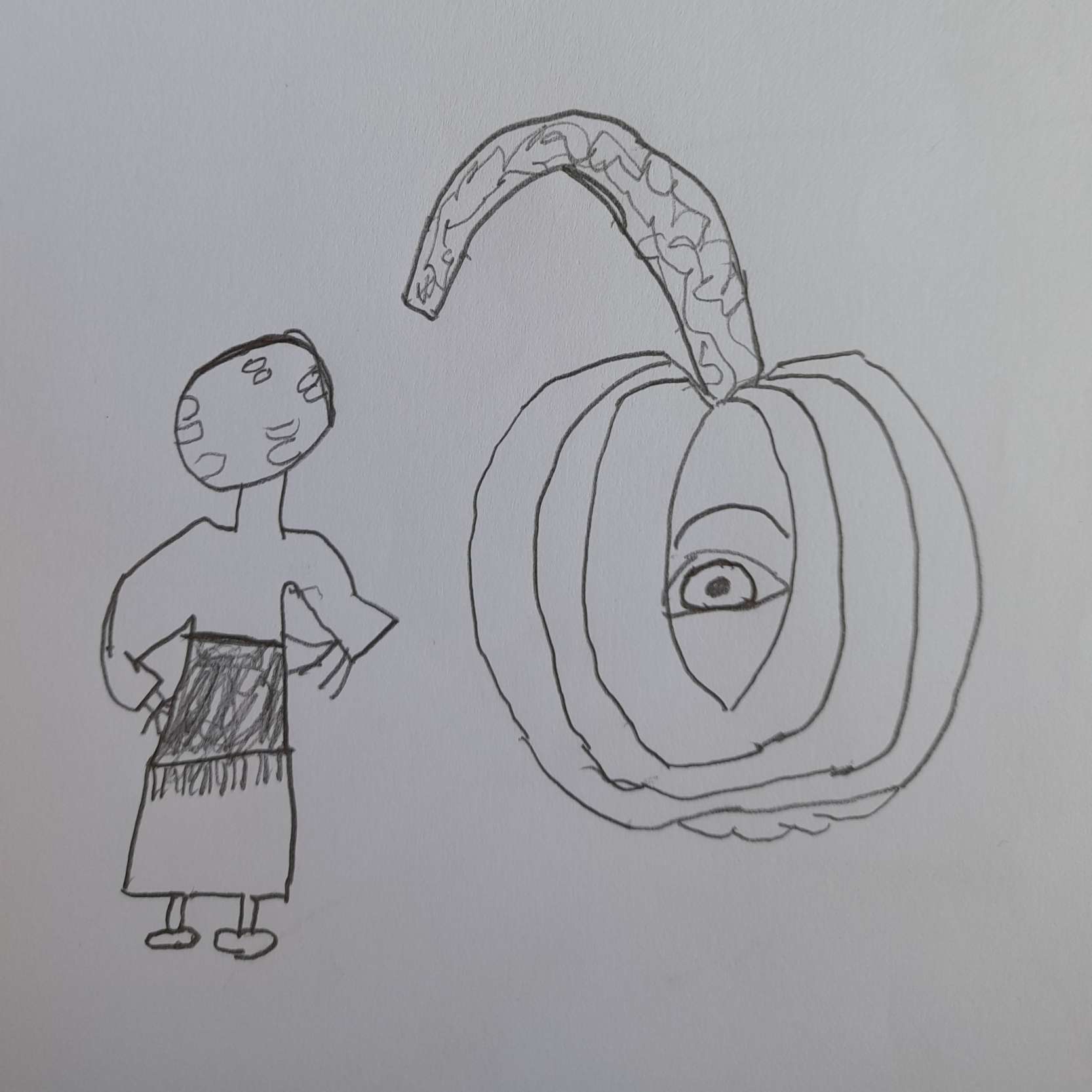
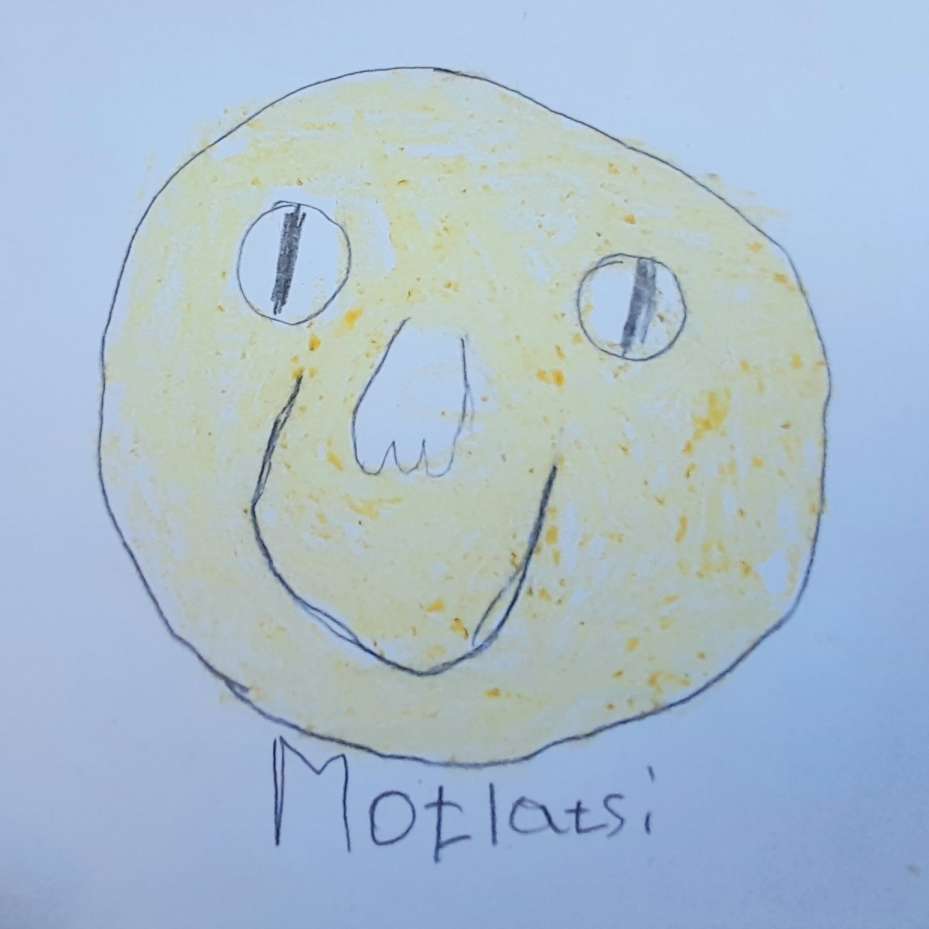
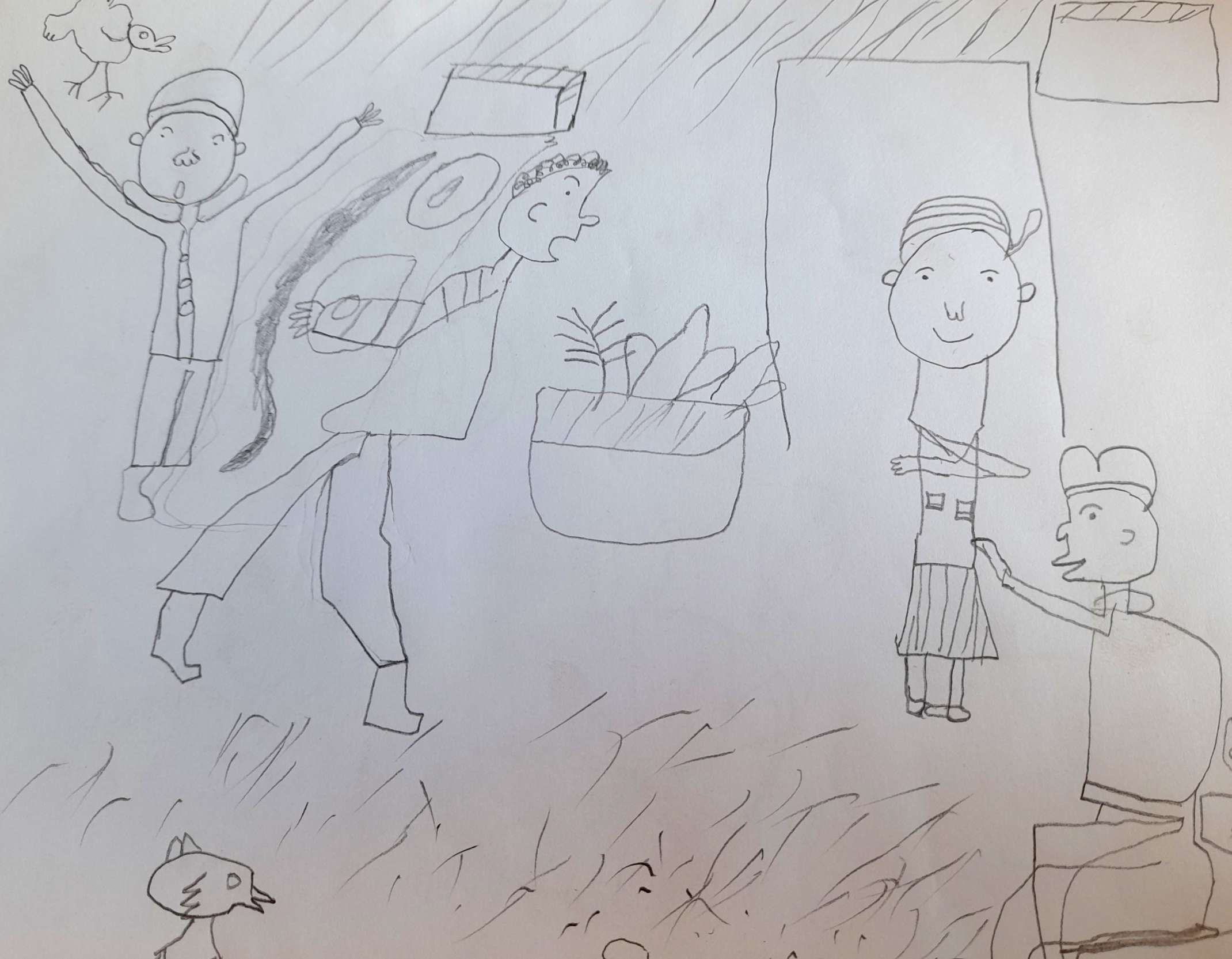
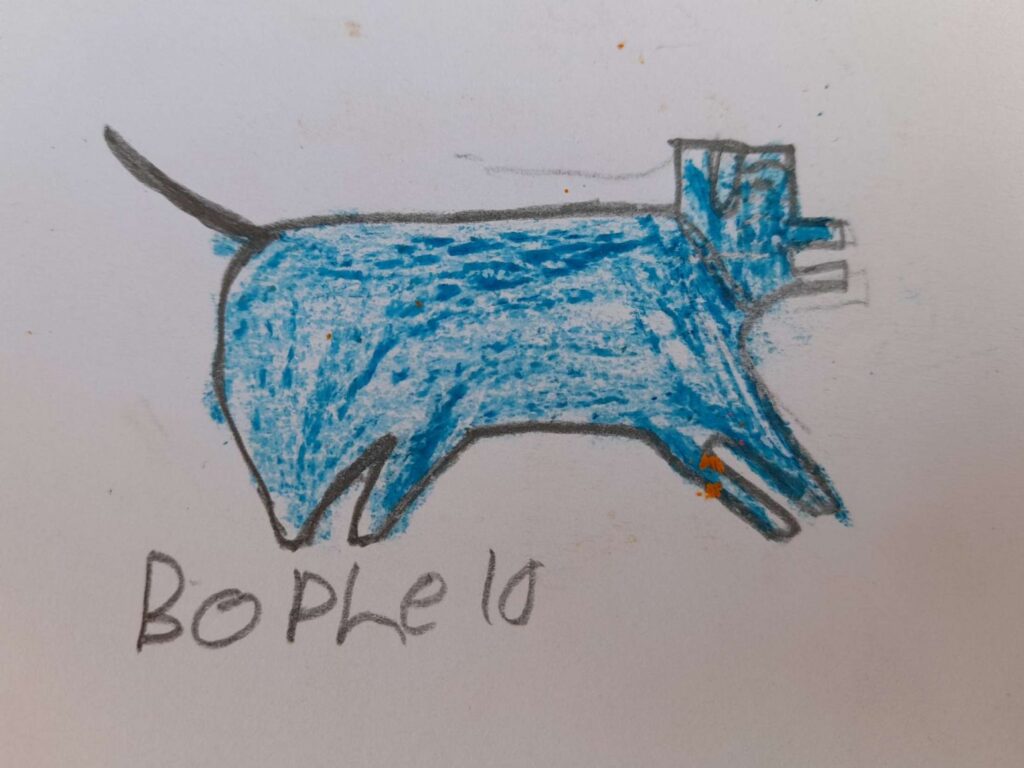
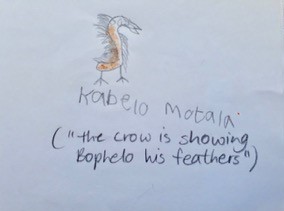
- We eat lunch together and the children receive their Mofaho oa Libuka (Book Snack bags). This plastic, sealable bag contains a copy of the book(s) we worked with and other suitable books that we distribute from Book Dash. Stationery and treats (e.g. balloons, biscuits, fruit) are also found in the bag.
- Sometimes distributing other items is warranted. At festivals where we’ve read the coronavirus book we have given out a bar of soap and a mask. With our counting book we give out a pocket-sized 1-10 number card that we developed for the children to use at school.
- We wrap up our festival by talking with the children about how the books can be read at home, demonstrate how the books should be looked after, and reiterate that they can be shared with others if the children so wish.
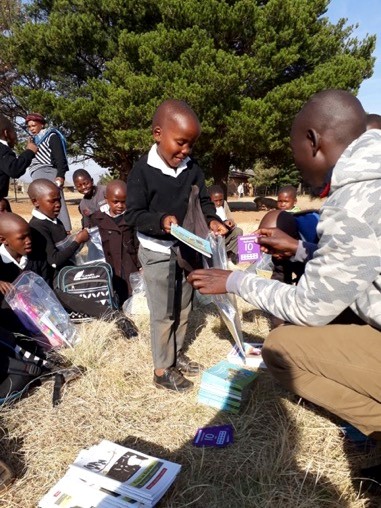
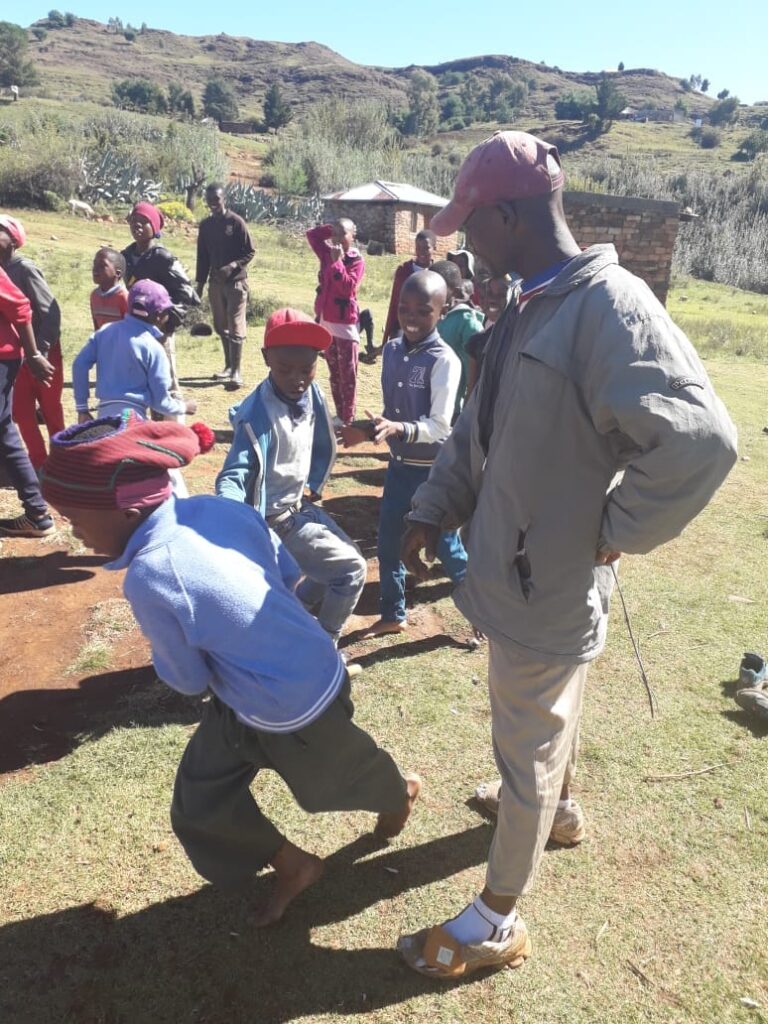
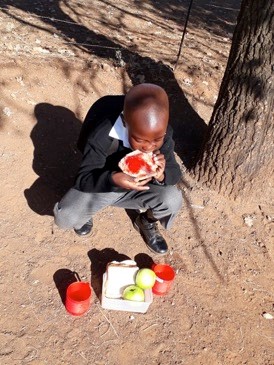
- If we are working in a school, all observing teachers receive a pack which contains a copy of the book(s) as well as stationery and our Ha re Baleng! (Let’s Read!) posters for their classrooms. We try and have informal chats with the teachers to get feedback about the festivals and books themselves. We discuss plans for making use of the books and how to develop a culture of reading in their school.
- We may give the village chief a copy of the book(s) and ask him/her to talk about the importance of books at a village meeting. We may also invite a social worker and observing parents to talk to us about books and reading in their institutions/homes.
- We always hope to come back another time to bring more books and to host a story creation workshop with teachers and children.
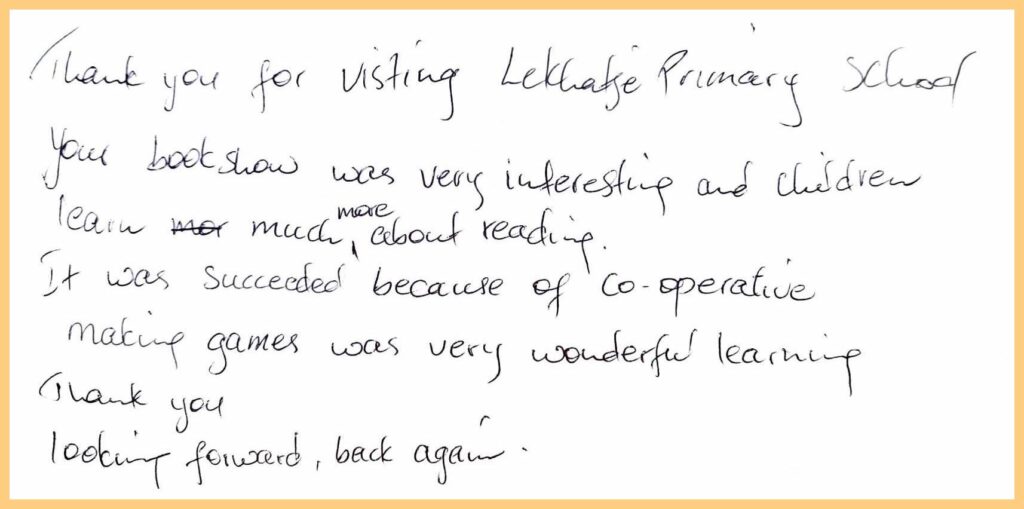
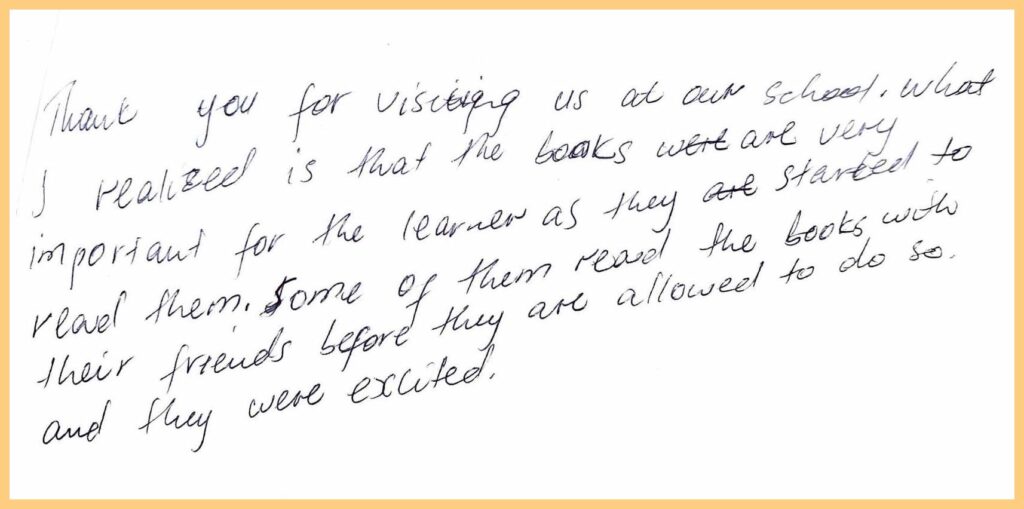
The video below showcases one of our festivals from 2021 and features an interview with our co-founder, Khothatso.
Additional Distribution
We don’t only share our books at Story Festivals. We go anywhere we are invited and anywhere we can find groups of children. So far this has included distributing to orphanages and after-school programmes, amongst others. Special events at which books are given out are described here.
We also don’t only share our own storybooks with children. We will distribute any book that we feel is suitable for the context, is in an accessible language, is interesting, fun, and useful. We have distributed books created by Ntate Octovious Pheku from the Family Art & Literacy Centre in Maseru, South African Book Dash books, as well books donated by the African Library Project based in the USA.
Some of our stories, and other translations thereof, are up on the African Storybook website. This project, of which we were the Lesotho hub for three years, aims to provide free access to stories in indigenous African languages to children across the continent.
We are deeply grateful to our Paleng’s Angels for their vital role in distribution, through festivals and other avenues.
Work With Adults
Although we focus on working with children in the library and at Book Festivals, we also work with adults in specific ways:
- We run detailed, multi-day teachers’ workshops focusing on the use of our picture storybooks in Primary school classrooms.
- We demonstrate to teachers how a story can be read to children and how dramatisation and other activities around the story are useful.
- We run story creation workshops with adults and children to promote literacy development.
- We help other schools and centres set up in-house libraries.
